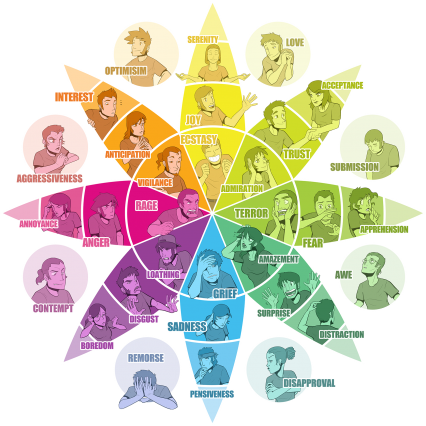Just like the elements of the creation, be them small or big, are messages from God, natural events, too, are signs and messages of God, be them ordinary or out of the ordinary.
Unfortunately, those who have molded their minds so that they will not see those messages even if posed explicitly cannot find true guidance. Instead, they seek alternative explanations and cover up the eyes of their hearts.

Indeed, Allah is not timid to present an example - that of a mosquito or what is smaller than it. And those who have believed know that it is the truth from their Lord. But as for those who disbelieve, they say, "What did Allah intend by this as an example?" He misleads many thereby and guides many thereby. And He misleads not except the defiantly disobedient, (2/26)
Unfortunately, those who have molded their minds so that they will not see those messages even if posed explicitly cannot find true guidance. Instead, they seek alternative explanations and cover up the eyes of their hearts.
I will turn away from My signs those who are arrogant upon the earth without right; and if they should see every sign, they will not believe in it. And if they see the way of consciousness, they will not adopt it as a way; but if they see the way of error, they will adopt it as a way. That is because they have denied Our signs and they were heedless of them. (7/146)
We then replaced their misfortune with well-being until they were relieved and began saying, "Our fathers had also experienced good and bad days." Suddenly, We struck them (with torment) while they were all unaware (of what was happening). (7/95)This is, perhaps, what had happened with the son of Noah, when he said that he could escape the flood by climbing a high mountain. In their view, this rain was the long awaited water after a drought that struck them hard, which in fact was a warning from God but which was missed by the people of Noah for the reason stated above.
Then I said, Ask forgiveness of your Lord, surely He is the most Forgiving: He will send rain to you in abundance (71/10-11)
And it sailed with them through waves like mountains, and Noah called to his son who was apart [from them], "O my son, come aboard with us and be not with the disbelievers." His son replied, "I shall climb up a mountain and this will save me from the flood." Noah said, "No one can escape on this day from God's command except those on whom He has mercy." The waves separated Noah from his son who was then drowned with the rest (of the unbelievers). (11/42-43)

Then, it is clear that the events that happen to us personally or as a society are communications from God in different languages. These languages can be in the civilized manner as in the admonitions of the holy books, or they can be in more physical forms such as economical crises, natural disasters, pandemics, wars... All in all, the message is clear. The will of God is established sooner or later, but whether we are going to benefit from it or lose badly depends on our choice of actions.


And if Allah were to impose blame on the people for what they have earned, He would not leave upon the earth any creature. But He defers them for a specified term. And when their time comes, then indeed Allah has ever been, of His servants, Seeing. (35/45)
Till, when the messengers despaired and thought that they were denied, then came unto them Our help, and whom We would was saved. And Our wrath cannot be warded from the guilty. (12/110)It is also noteworthy that being in a society that is committed to evil, in and of itself, is a potential risk. If you are there and working to spread the message of God through your actions and communications, then you personally may be safe. However, extended duration of "no result", that is no change for the better, may be a sign that you shouldn't stay there anymore. Being in a decisively sinner community is also a risk in the sense that you yourself can shift towards them. After all, you are an individual in the face of a society. Even if you don't commit those sins yourself, you may start supporting their evils through various make-ups in your mind. So, one must separate from a sinning society at some point or at some depth. If you have to stay in there, you must detach your heart and/or your personal life from them to stay properly guided. Otherwise, you may find yourself at the same dreadful end.
And fear an affliction which may not smite those of you in particular who are unjust; and know that Allah is severe in requiting (evil). (8/25)

To sum up, an economic or political crisis or a war or a pandemic affects everybody. These events are for sure messages or afflictions from God, but those who have blinded their hearts won't be able to see this. Furthermore, joining the party of such blind hearted people, even if you don't actively do evil, is a fault in itself. In such cases, when the time comes, God establishes the order by force. These forces may be incomprehensible or invisible. The incomprehensibility, we talked about it. But what about invisibility? Angels? Yes, angels are part of the answer, but not the whole of it.
And to Allah belong the soldiers of the heavens and the earth. And ever is Allah Exalted in Might and Wise. (48/7)
When the angels are in action, this may be invisible to us, like a miraculous intervention, or it can be visible to us behind certain veils. For example, when the people of Lot were destroyed, it was the angels at work but in the appearance, a natural disaster of some sort was taking place. Similarly, during the Event of the Elephant (105/1-5) when the army that was about to destroy the Kaaba was itself destroyed by the birds, it was angels at work behind the veil. Again, during the Battle of the Trench (Handaq) in the Islamic history, the wind that made it impossible to stay outside, let alone fighting, was a clear, but invisible, help from God. It was fulfilled by the angels, but the manifestation of this help was an unyielding and endless storm.
O you who have believed, remember the favor of Allah upon you when armies came to [attack] you and We sent upon them a wind and armies [of angels] you did not see. And ever is Allah , of what you do, Seeing. (33/9)
After this journey to the future in time, if we snap back to our time on the ark, obviously those who have been blind towards the messages of God have been eradicated, and we are in an explicit coverage by God. Still, the same question bothers us, what to do to avoid a massive relapse to the heart blindness?








































